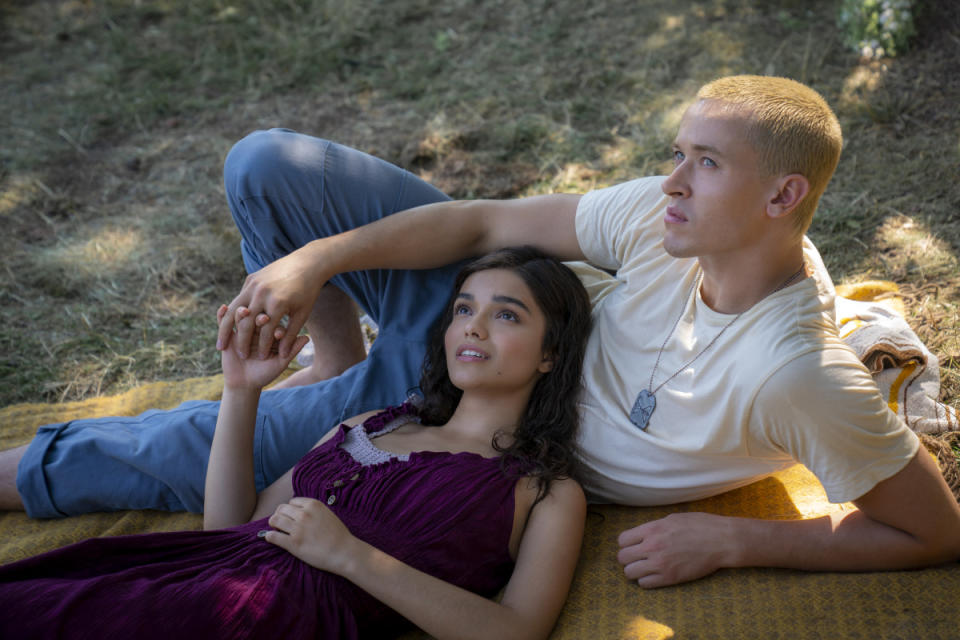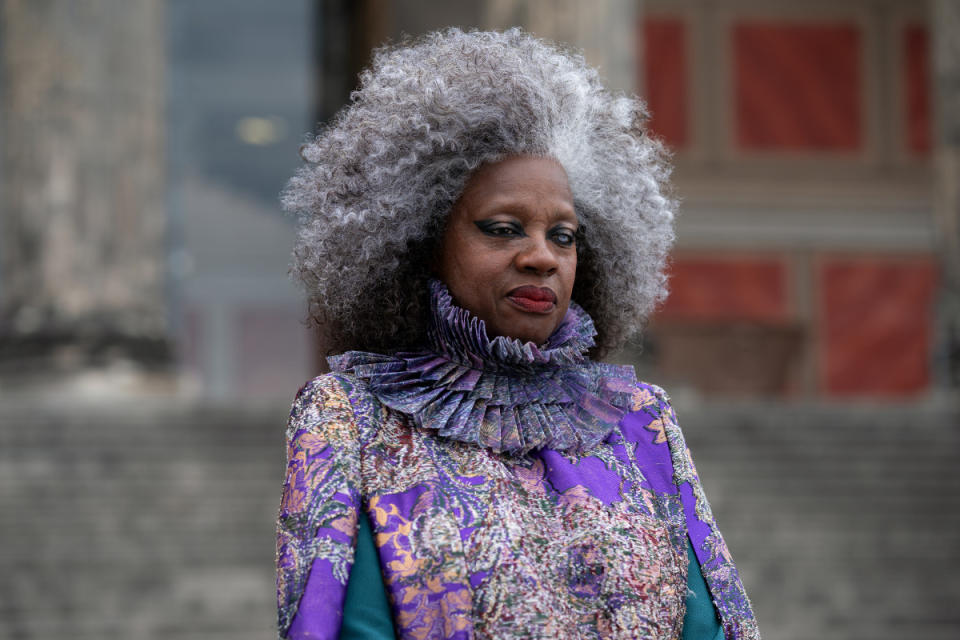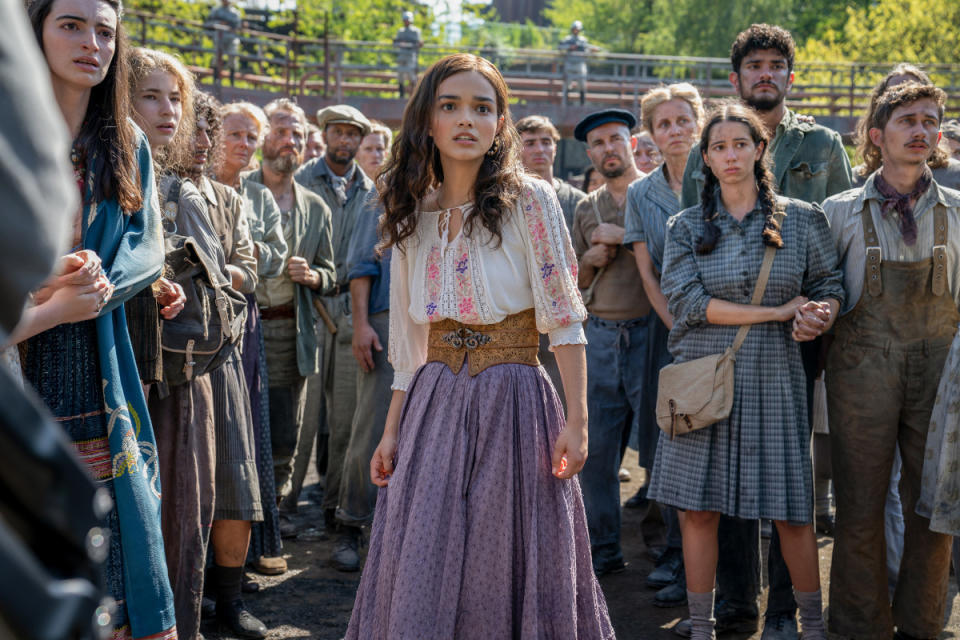For Better and Worse, 'Ballad of Songbirds and Snakes' Follows the Book

The Hunger Games: The Ballad of Songbirds and Snakes Review
Gird your loins. The resurgence of the club remix of Jennifer Lawrence singing "The Hanging Tree" is upon us. That's because the prequel film to the original Hunger Games tetralogy, The Hunger Games: The Ballad of Songbirds and Snakes (what a mouthful), has arrived in theaters with plenty of hanging tree references and a new (yet to be club-remixed) version of the song from Rachel Zegler.
Set 64 years before the events of the original series (Katniss Everdeen competed in the 74th and 75th Hunger Games; now we're back at the 10th), the Ballad movie is based on the 2020 prequel novel by Suzanne Collins. The novel, which is the origin story of the original trilogy's villain Coriolanus Snow (played by Donald Sutherland in the films), is an odd thought exercise, the type of book that can only be written by an author so massively successful that they can ignore potentially helpful critiques from their editors. As Collins acknowledges with epigraphs and in the book's afterward, she was fascinated by the political theories of Hobbes, Locke and Rousseau, doling those beliefs out to characters in the book to watch them interact. While imbuing your young adult novel with philosophical quandaries may not be the worst idea, it does make the story clunky in a way that at least the first two sleek, expertly paced books in the series were not (we don't have the time to get into Mockingjay). While it seemed only natural for Hollywood execs to cast aside some of Ballad's more laborious bits, for better and for worse, the movie sticks EXTREMELY closely to the book.
The role of Coriolanus Snow (or "Coryo" to friends) is now being played by newcomer Tom Blyth, whose most substantial credit to date is a supporting role in 2021's Benediction. Snow's once wealthy family only barely survived the war between the Capitol and the Districts, and now it's up to the ambitious Coryo to return the Snows to their former glory. Due to poor ratings for the Hunger Games in the Capitol (because who really wants to watch grubby 10-year-olds hack at each other with battle axes?), each of the Tributes in the 10th Hunger Games will be assigned a Mentor from the Capitol's high-school seniors. Snow is assigned Lucy Gray Baird (and that's Lucy Gray NOT just Lucy!), the folk singer from District 12 played by West Side Story's Zegler.
Related: The Complete List of 2023 Oscar Winners

Lionsgate
Perhaps the most interesting thing about Ballad in both forms is the old-school reality-TV feel to it. If the 75th Hunger Games played like the glossy, perhaps over-produced Season 23 of The Voice, the 10th unfolds like the crunchy early seasons of The Amazing Race where nothing was fine-tuned and chaos often ensued. The Capitol is just figuring out the pre-games fanfare, and the book/movie expertly captures the fly-by-the-seat-of-your-pants, ramshackle quality of 2001 reality shows.
Lucy Gray (who wants to survive the Games) and Coryo (who wants the cash prize that comes if Lucy Gray wins) begin a press tour that mostly involves LG warbling various Dolly Parton-meets-Mumford & Sons-esque tunes (penned by Collins in the novel), and then we're onto the Games themselves. The 24 tributes, less a handful who didn't even make it to the opening, mangle each other in the arena; Coryo does his best, through means legal and otherwise, to ensure an LG victory; and, as you certainly knew would happen all along, Lucy Gray comes out on top.
However, where the book (and the film) fall apart is in the arduous third act, which sees Coryo sent to District 12 as a Peacekeeper, i.e. a cop, where he reconnects with LG (and since this is a nearly three hour-long movie, the third act goes on for quite some time). It's here we get several more musical interludes, some inner turmoil as to whether Snow would rather be rich and powerful or live on the fringes with LG and a hasty, unearned ending (shocking, given the runtime, that anything here is hasty).

Lionsgate
For fans of The Hunger Games, there is certainly plenty here to enjoy. The old music cues still hit, the actual Hunger Games sequences are taut and action-packed, and there are plenty of the ridiculous names and costumes we've grown to love. Given the choice between watching Ballad or saying farewell to the franchise, I'll take watching Ballad any day. Jason Schwartzman is delightful as the doofy emcee/amateur magician/Al Roker stand-in Lucky Flickerman (the predecessor to Stanley Tucci's Caesar Flickerman in the later books), Viola Davis goes all in as the Amanda-Waller-meets-Pennywise creator of the games, Volumnia Gaul, and while Hunter Schafer isn't given much to do, she provides the film with sweetness (and also the best costumes).
Unfortunately, Ballad mostly suffers in the proportions, with too much of some things and not nearly enough of others. With 24 tributes and 24 mentors, no one aside from Coryo and LG get much screen time. The mentors are staged in various rooms like the Deal or No Deal girls and trotted out once their tributes get axed. Meanwhile, the poor tributes, dressed like extras from The Grapes of Wrath, are indistinguishable, unlike those facing Katniss and Peeta who loomed much larger. Plus, this early version of the Hunger Games feels a little bit like Whose Line Is It Anyway? where "everything is made up and the points don't matter." It's really Pennywise Gaul's world, and they're all living in it.
Related: Best Movies of 2023 (So Far)

Lionsgate
The most frustrating thing about the movie (and the book), however, is the character development of its leads. You can understand Coryo's motivations for most of the book, but the ending is so abrupt that it feels unearned, and does very little to set up the villain Snow will become. It sort of feels like ending the Star Wars prequel trilogy with Attack of the Clones rather than Revenge of the Sith. Meanwhile, Lucy Gray is a hoedown throwdown manic pixie dream girl who speaks in Hobby Lobby platitudes and cryptic folk songs. Ballad reminds you that Jennifer Lawrence is one of the greatest actors of her generation for being able to pull off this stylized dialogue with authenticity and realism. Zegler has opted to put on a yee-haw (at points nearly Foghorn Leghorn-level) Southern accent, a choice which I'm sure is based on the supposed geography of Panem, but feels out of place here given that accents haven't factored into the franchise much until now. She's acting with a capital "A" in a way that makes you think she was informed there were talent scouts in the audience right before she took the stage. Coryo and LG never seem to have much chemistry, which makes sense given who they are as people, but doesn't quite work for the story, and Blyth and Zegler can't make up for that.
When all is said and done (and the corpses are dragged out of the arena to prep for HG11), Ballad of Songbirds and Snakes is certainly a fun rabbit hole in the Hunger Games universe and hopefully points to more to come from this rich world (although the film doesn't hint at that). Unfortunately, at nearly three-hours long, the movie gives you too much of some things and not nearly enough of others. Still, for all its flaws, at least critics can't say, "It didn't follow the book."
Grade: B-
Next, 26 Academy Award Contenders for 2024 That You Can Already Watch

